The Fitness Embassy® Body in Space – Skills 4 Skills Program applies principles of kinesthetics (body position awareness) to enhance a child’s functional performance by participating in instructor led practical sessions.
Balance provides a base line of support while stability enables children the ability to return to a state of control. These two factors impacts a child’s natural gross motor skill development and if not addressed, can adversely influence their control of movement affecting coordination.
During a child’s early developmental years, parents may mistake poor balance and stability with clumsy behaviour, poor vision, or often observe a delay in performing simple tasks using hand-eye movements. If your child is struggling with this it may lead them to injury through falls, reduced self-esteem, experience struggles when performing daily activities, difficulty sitting still, or through poor attention and focus can be easily distracted.
In a motivational and enjoyable environment, our experienced instructors deliver customised movement programs through play that are designed to address five (5) key learning areas for childhood and school aged children.
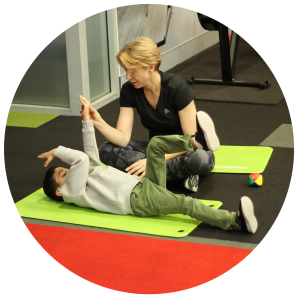
|
|
 Bilateral Integration Bilateral Integration |
 General Motor Skills General Motor Skills |
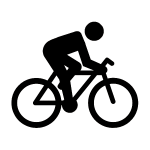 Balance Balance |
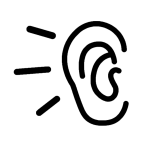 Vestibular Vestibular |
|
| Benefits | Greater learning capacity and improved central nervous system function. Correct response to fight or flight responses. | Ability to use both sides of the body together in a coordinated way. Healthy brain function sharing and communicating information. | Stabilises the trunk and neck of the body with spatial awareness. The ability to recognise depth and distance and adapt accordingly. | Increased resilience amidst changing positions and obstacles affecting the body. Optimum proprioception and neuromuscular function. | Inner ear and brain that helps control balance preventing falls. |
| Prompts or cues to look out for? | Poor sight, smell or touch. Your child may overreact to stimuli like sudden noise, light, movement or bodily position. Poor stamina witnessed. | Difficulty using scissors to cut paper. Challenged to play with music instruments. Difficulty copying simple left and right hand gestures. Difficulty catching a ball or playing ball sports. Challenged by playground skills including climbing. | It is a challenge to perform everyday functions in a timely manner which may include: walking, running, skipping. Challenged by playground skills including climbing and jumping. Difficulty catching, throwing and hitting a ball with a bat. | Scared of heights. Falls often and complains of
Dizziness. Difficulty standing on one leg. Challenged by a trampoline to maintain balance. |
Motion sickness
Clumsy Falls often and complains of Dizziness. Difficulty standing on one leg. |
| Skill Development | Improve muscular endurance and strength development. Element of surprise and chance through play. Colour training and investigating shapes. | Crossing the midline.
Hand eye coordination using metronome. Discovering left and right brain activities through pendulum swing. Improving posture through neurological adaptation. Catching and time to be a copycat activities. |
Improve muscular endurance and strength development. Increase trunk and neck strength. Around the clock game. Hop scotch countdown. Swiss ball bounce. Balloon tennis progressions. Health food relay. | Tight rope walk. Flamenco time!
Let’s swing! Trampoline and counting challenges. Step up and burpee time. Play through boxing patterns. Ninja Warrior obstacle course. |
Pendulum swing head tilt. Tight rope eye movement. Skipping time. Swiss ball balance. Trampoline and counting challenges. Rocking chair activity. Ninja Warrior obstacle course. Island leap frog activity. |
| Impact on a Child’s Classroom Engagement | The ability to focus on an activity or task despite changed environmental conditions such as lighting changes, moving classrooms or a different teacher leading the lesson. | The ability to participate in hand eye coordination tasks including cutting, drawing, colouring-in, tracing, tearing. This also promotes ball game catching activities required in sport and PDHPE lessons. | The ability to safely and without risk of injury perform agility based activities in practical lessons, as well climbing activities commonly found in the playground during lunch time. | Active participation in jumping and balancing activities with confidence and within a teamwork setting. | The ability to catch a bus or vehicle ride without feeling sick or dizzy. Active participation in games that include eyes closed and single-leg balancing competitions. |
Of our five senses, perhaps vision is the most significant sensory input that support balance, coordination, and in turn social behaviour in young children.
The Fitness Embassy® Body in Space – Skills for Skills Program is complimentary to vision therapy and behavioural optometry, as we work closely in partnership with families and allied health professionals to ensure that effective movement programs and desired outcomes are achieved in each session.
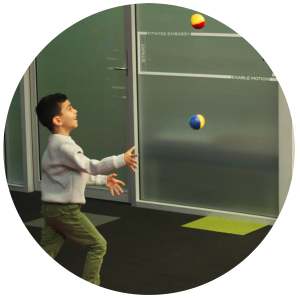
Access & Eligibility
Eligibility
Fitness Embassy® is proud to say that our All Abilities programs are able to be accessed by any person living with a disability, whether that be a physical or an intellectual disability.
At Fitness Embassy® there are no age restrictions, no physical or mental restrictions (provided they pose no harm to themselves or others) or discrimination against any race or religion.
Fitness Embassy® conducts Pre-Exercise screening with all participants prior to taking part in any of our services (Enable Social, Enable Motion or Exercise Physiology). This exercise screening will highlight if there are any risks to the participant should they take part in any session. This will be discussed with the participant and/or their carer to determine whether they should take part. A Fitness Embassy Partner is the professional to discuss such details with the participant.
How to Access the All Ability Programs
In order to enrol in any of the advertised All Ability Programs that Fitness Embassy® offers, contact our General Manager who is also our NDIS liaison, Janine Cameron at 02 8889 2840 or email her directly at janine@fitnessembassy.com.au.
Janine will arrange a time to meet with you (and your carer if appropriate) to show you the premises and to discuss your needs and requirements. You will then be able to arrange dates and times to commence the program/s. Janine will also be your liaison with regards to Service Level Agreements, SLA, along with further funding, queries, and/or concerns.
Fitness Embassy® Skills 4 Skills
By Appointment Only

Mark Moy
Fitness Partner

Annasimone Wanis
Fitness Partner

Nik Vidin
Fitness Partner

Josh Inns
Fitness Partner
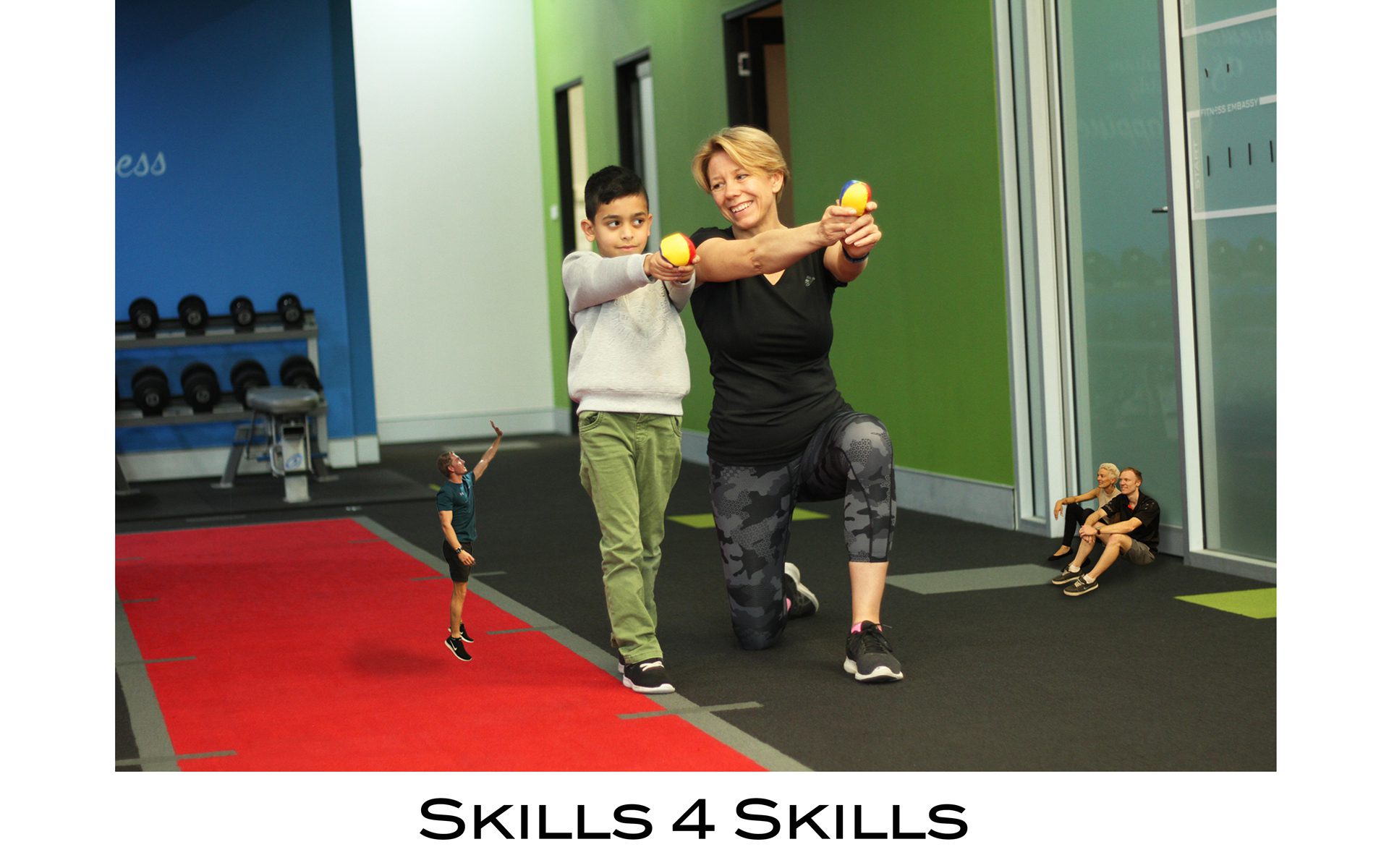
 Retained Primitive Reflexes
Retained Primitive Reflexes